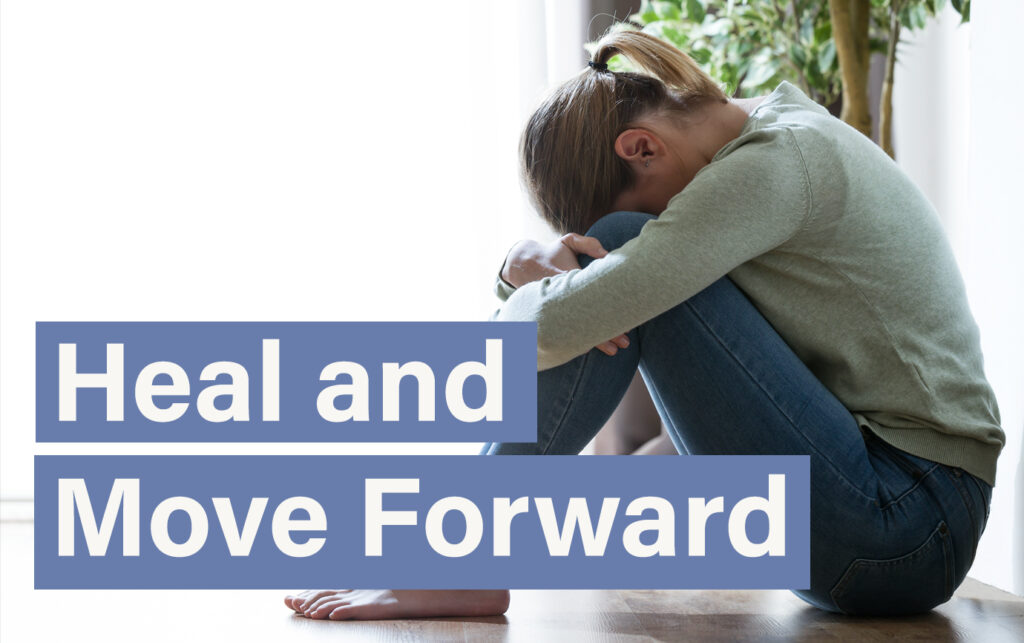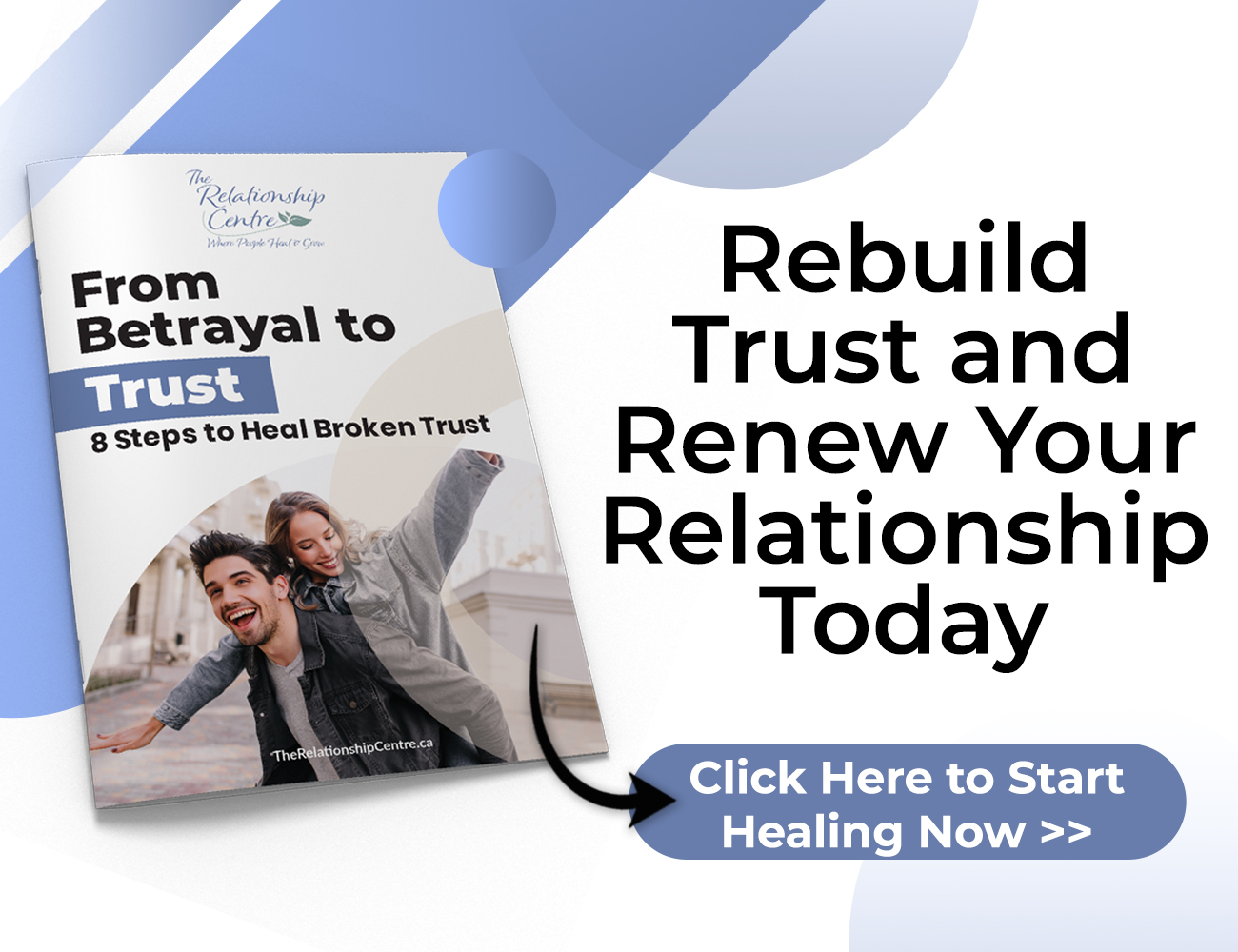Betrayal is like a storm that rips through your relationship, leaving trust shattered. It’s tough, and the path to healing might feel like uncharted territory. And here’s a guide – a roadmap of 8 steps that can help you recover from betrayal and also rebuild trust, making your relationship stronger and more resilient than ever.
1. Acknowledge the Betrayal
Betrayal is heavy. The first thing you need to do is face it head-on. Acknowledging it isn’t just admitting something happened; it’s about recognizing the pain and accepting the harsh truth. This is the starting point for understanding the emotions involved and beginning the healing process.
Before moving forward, take a moment to grasp the depth of the betrayal. What happened, and how did it happen? Was it a one-time thing, or a series of actions? Understanding this context helps you approach the healing process with a clear perspective.
Betrayal is an emotional earthquake. Give yourself the space to feel everything – the anger, sadness, and confusion. It’s okay to grieve the loss of trust and the vision you had for your relationship.
2. Establish Boundaries
After betrayal, the rules change. Rebuilding trust starts with setting clear boundaries. Both of you need to define what’s off-limits and communicate it. These boundaries prevent future betrayals and also create a safe space in your relationship.
To set effective boundaries, be clear on what behaviours are unacceptable. Talk openly about your needs and expectations. Defining these boundaries is a joint effort, laying the foundation for rebuilding trust.
Setting boundaries isn’t a one-time thing; it’s an ongoing commitment from both of you. Regular check-ins ensure you both feel respected and heard.
3. Communicate Openly
Communication is the glue that holds relationships together, especially after betrayal. Create a space for open and honest dialogue. This isn’t just about talking; it’s about nurturing an environment where you both feel free to express your feelings, fears, and expectations without fear of judgment.
Open communication needs a safe space. Actively listen, empathize, and understand each other’s perspectives. Creating a safe space encourages vulnerability and sets the stage for rebuilding trust.
After betrayal, transparency is crucial. Be open about your thoughts, feelings, and actions. This honesty rebuilds trust, showing your commitment to integrity.
Betrayal often breaks down communication. Identify these breakdowns and work on improving them. Recognizing and fixing these patterns is essential for moving forward.
4. Rebuild Trust
Rebuilding trust is delicate. It demands consistency, transparency, and a genuine commitment from both partners.
Actions speak louder than words. Rebuilding trust means your actions align with your promises. Consistency is key, to demonstrating commitment and reliability.
Rebuilding trust takes time. Be patient with each other and with the process. Trust isn’t built overnight, and understanding that is crucial for the journey.
5. Forgiveness
Forgiveness is often misunderstood. It’s not about letting someone off the hook; it’s about freeing yourself from the burden of resentment.
Before forgiving, understand that it’s not pardoning the betrayer. It’s about freeing yourself from resentment’s grip.
Forgiveness is a mutual effort. It involves acknowledging mistakes, taking responsibility, and actively working towards rebuilding the relationship without carrying the weight of the past.
6. Self-Reflection
In the chaos of betrayal, take a moment for self-reflection. Dive into your emotions, motivations, and vulnerabilities.
Understand the emotions that surface after betrayal. It’s about going beyond anger and recognizing deeper emotions.
Betrayal often triggers deeper insecurities. Identify these triggers, acknowledging patterns that may have contributed to the breakdown in trust.
Self-reflection isn’t just about understanding; it’s about committing to personal growth. Actively work towards becoming a healthier and more resilient individual, strengthening the overall relationship.
7. Seek Professional Support
Healing might require professional guidance. Mental health therapists offer a safe neutral space for both of you to express yourselves.
Professional support offers expert insights and strategies tailored to your unique relationship. It provides a structured perspective, accelerating the healing process.
Therapists offer you expert guidance to talk about what really matters so you can heal and protect your relationship from any further betrayals.
8. Moving Forward
Moving forward is about implementing lessons learned from the betrayal. It involves ongoing communication, honouring boundaries, and working together for a shared vision of the future.
This earth-shattering event provides the opportunity to rebuild your relationship to be the safe, secure haven you have always wanted. But there is work to do to get there.
Betrayal leaves scars, yet it doesn’t have to be the end.
By acknowledging the betrayal, setting boundaries, communicating openly, rebuilding trust, forgiving, self-reflecting, seeking professional support, and actively moving forward, you can emerge with a relationship that’s stronger and more resilient.
The journey is tough, the path intricate, and the destination promises a renewed and enduring connection. In every small step, you contribute to the resilient future of your relationship.
If you would like to see how and if one of our therapists can help you or someone you know, simply call 613-848-3683 and one of our Care Coordinators would be delighted to share the details with you.
Or… Click here to book a call with a Care Coordinator now >>
Recommended Reading:
Until now, we have been taught that forgiveness is good for us and that good people forgive.
Dr. Spring, a gifted therapist and the award-winning author of After the Affair, proposes a radical, life-affirming alternative in How Can I Forgive You that lets us overcome the corrosive effects of hate and get on with our lives—without forgiving.
This bold and healing book offers step-by-step, concrete instructions that help you make peace with others and with yourself while answering such crucial questions as these:
- How do I forgive someone who is unremorseful or dead?
- When is forgiveness cheap?
- What is wrong with refusing to forgive?
- How can the offender earn forgiveness?
- How do we forgive ourselves for hurting another human being?
Click here to check out the book How Can I Forgive You now >>















